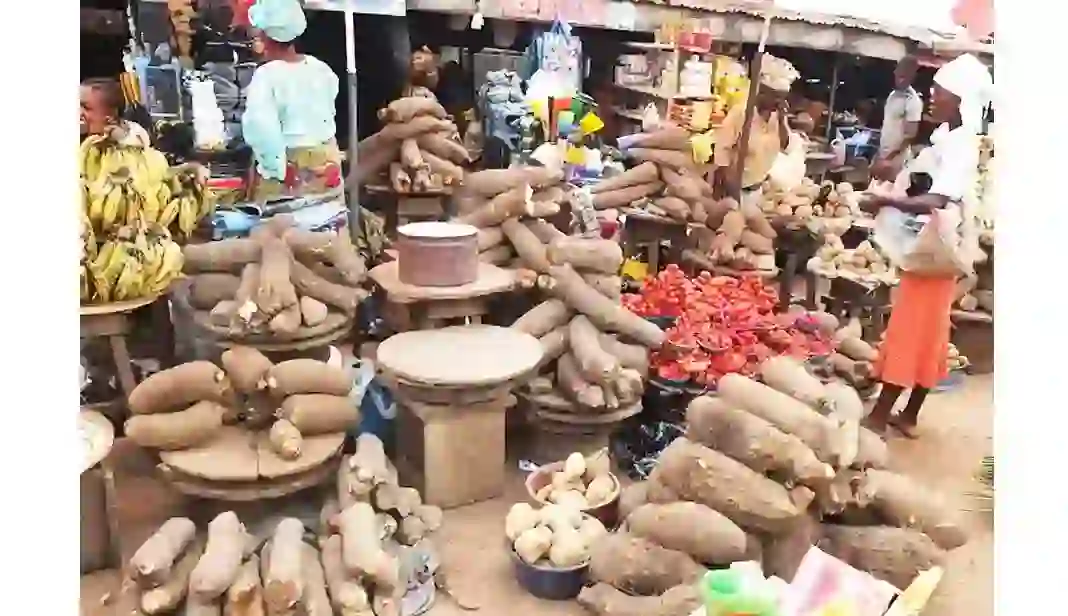Report has it that Nigeria’s Food Insecurity will worsen by 2025 and may throw nothing less than 33 million Nigerians into hunger if not earnestly addressed.
Nigeria, the most populous Black Race with an estimated population of around 223.8 million, is presently battling with economic hardship. Its citizens are lamenting over hike in food commodities.
Sadly, a report by Cadre Harmonisé led by the Federal Government and supported by partners, including the United Nations World Food Programme, warned of deteriorating food security in Nigeria, with 33.1 million people projected to face high levels of food insecurity during the next lean season (June-August 2025).
Analyzing the danger that lies ahead, the report states that the resulting annual production losses for maize, sorghum, and rice in flooded areas could total 1.1 million tonnes – enough to feed 13 million people for a year, with financial losses nearing USD 1 billion.
Another cause of the looming Food Insecurity is the persistent violence in the North Eastern states of Borno, Adamawa, and Yobe, which hinders food availability and access.
Also, Armed Banditry and Kidnappings in the North West and Farmer-Herder Conflicts in North-Central states, including Zamfara, Katsina, Sokoto, Kaduna, Benue, Plateau and Niger, aggravated the ongoing economic struggles.
Trends in the North East have shown persistently high or rising food insecurity levels since 2018, with at least 4 million additional people requiring urgent assistance each lean season since June 2020. The northwest and parts of the north-central region now exhibit critical levels of severe food insecurity and malnutrition, marking them as hunger hotspots that urgently demand action from decision-makers.
Representing Dr. Nuhu Kilishi Mohammed, the director of nutrition and food security, the permanent secretary of the Federal Ministry of Agriculture and Food Security, Dr. Temitope Fashedemi emphasized the importance of the Cadre Harmonisé in planning food and nutrition security interventions nationwide.
FAO’s representative ad interim in Nigeria and to ECOWAS, Dominique Koffy Kouacou, reiterated FAO’s commitment to supporting Nigeria, stating, “Working with our partners, FAO is dedicated to implementing durable solutions that tackle the root causes of food insecurity and malnutrition. By enhancing agri-food systems, we aim to meet immediate needs while promoting sustainable progress.”
Highlighting the ongoing issue, WFP’s country representative, David Stevenson said, “The hunger crisis in Nigeria, driven by the conflict in the northeast, requires urgent attention. Restoring peace is essential to achieving the northeast’s potential as the country’s food basket.”
UNICEF’s country representative, Ms. Cristian Munduate stressed the urgent need for action, stating, “Children are at the heart of the crisis, facing irreversible physical and cognitive consequences, and potentially even death. We must ensure that every child’s right to adequate food and nutrition is upheld.”
The United Nations called on the Nigerian Government, donors, and stakeholders to commit resources to prevent a potential food and nutrition disaster, emphasizing the need for immediate, multi-sectoral support.
The report follows a $50m World Bank support for Nigeria’s food nutrition challenges.
Country Director of the World Bank, Ndiame Diop revealed this during a meeting with Vice President, Kashim Shettima at the Presidential Villa Abuja during the week.
According to Diop, the fund was earmarked under the Accelerating Nutrition Results in Nigeria (ANRiN) project 2.0 programme which is a crisis response window.
Discover more from The Source
Subscribe to get the latest posts sent to your email.








